
Introduction
The business world has had a rough few years since the pandemic began. The circumstances presented a whole different set of opportunities for businesses.
SMEs perhaps benefited the most. Their small size allowed for flexibility which in turn enabled them to adapt to incoming changes. Large enterprises had a tough time.
Many enterprises heavily relied on the traditional marketing frameworks even in the digital age. As a result, these were hit the hardest during the pandemic.
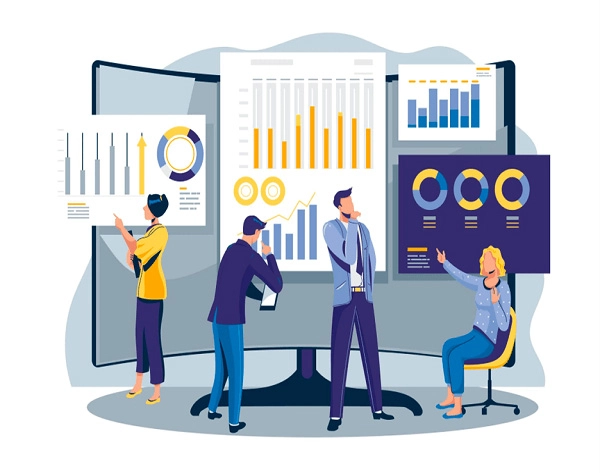
The enterprise marketing leaders need to recalibrate and relearn everything they know about marketing. This is the only way to stay relevant and competitive.
It is fair to say that the pandemic kick-started the biggest technological transition in human history. Society and human life are going to change drastically going ahead.
But what are these changes and how exactly is Enterprise Marketing changing?
Let’s find out!
How is Enterprise Marketing Changing?
If you consider the big picture, human society itself is changing and by extension the business world. Everyone from small vendors to SMEs to big enterprises is subjected to this change.
There are three core drivers of this change so let’s take a look at each.
Changing Demographics
Every generation of consumers is different in terms of their social norms, collective mentality, behavior, and expectations.
Until recently, marketing was geared up for the generations before millennials as they formed the majority of the consumers in the market.

However, presently, it is the millennials and Gen-Z that are the top consumers. Thus, marketing needs to change to suit their ways better.
Changing Customer Expectations
Marketing used to be standardized yet effective. That isn’t the case anymore. Customer expectations have changed and personalized marketing is booming.
Customers also expect a seamless experience along their customer journey and consistency in experience during their time with a brand.
Privacy and transparency have also become major concerns for consumers. People are unwilling to consider brands that don’t uphold these values.
Changing Technology
AI, ML. AR, VR, Web3, Quantum Computing and Metaverse are no longer just buzz words. These technologies have matured and have a mainstay in our lives now.
The impact each one of these technologies is going to have on our human lives is going to be tremendous. The business will need to get on pace with making the most of these.

These technologies will enable businesses to further raise the customer experience and satisfaction levels among the consumers. Other possibilities are endless.
Things All Enterprise Marketing Leaders Should Start Doing
Given these incoming changes and transitions, enterprise marketing leaders will need to do a lot of things. Let’s check them out!
1)Focus on the Customers
Competitor research used to be a big focus of marketing operations. An enterprise was primarily concerned about outdoing its competition in terms of enterprise marketing.
This involved coming up with better-performing products, better pricing, and better marketing campaigns. However, this needs to change now.
Approaches such as customer-centric marketing are gaining momentum. Why so? What the customers expect is more important than what your competitors are doing.
Customer Experience has Become Important
A staggering 58% of consumers state that customer experience affects their buying decision. This number is only increasing.
That’s not all, firms that focus on customer experience are 60% more profitable. So understanding what your customers need and want can drive revenue growth for you.

This approach will also help you curb various unnecessary costs associated with traditional approaches to enterprise marketing.
Personalization has become a Standard Norm
Consumer expectations are on the rise. They expect the same offline personalized experience in the online world.
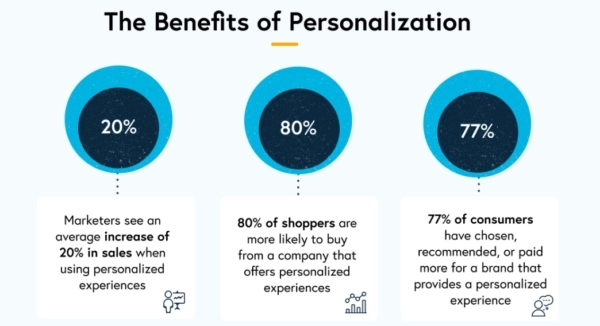
Source – business2community
Offering personalization has many benefits. It improves conversions, and engagement makes your brand more appealing, promotes loyalty, etc.
If you really want to see how impactful personalization has gotten, Startup Bonsai has published all the latest facts and stats about personalization in their blog.
Addressing Customer Concerns is a Necessity
A lot of events and incidents around the world get the customer concerned and worried about their well-being. Customers expect brands to be transparent and responsible.
Data privacy is a growing concern. More than 60% of consumers want strict data privacy laws and 54% of consumers are willing to walk away from brands that don’t address data privacy concerns.
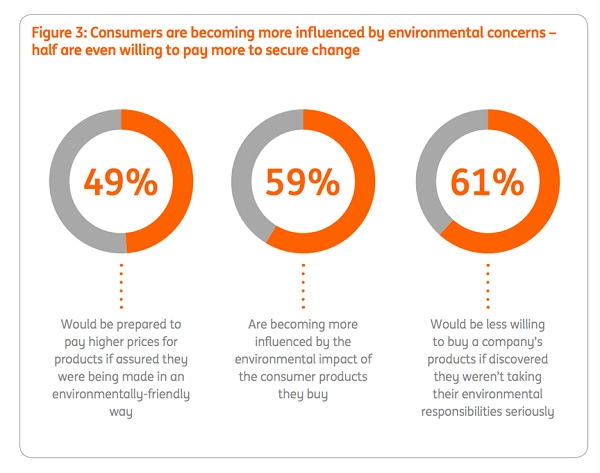
Source – foodindustryexecutive.com
Being socially responsible and environmentally friendly has also become necessary.
2)Rethink Strategy and Tactics
There have been drastic changes in the market, technology, and consumer expectations. Old strategies are not going to hold up in the present day.
Enterprise marketers will have to observe what works in the market and what doesn’t. Experimentation will be necessary to find the best solutions for your needs.
Keeping up with your industry trends and also those in the B2B, B2C, and SaaS sectors can give you new ideas. Here are a few things to keep in mind:
Seamless and Consistent Customer Experience
We’ve already gone over how important customer experience is. Delivering a positive customer experience seamlessly and consistently is as important in enterprise marketing.
Approaches such as omnichannel marketing and account-based marketing have been successful at achieving seamless and consistent customer experience.
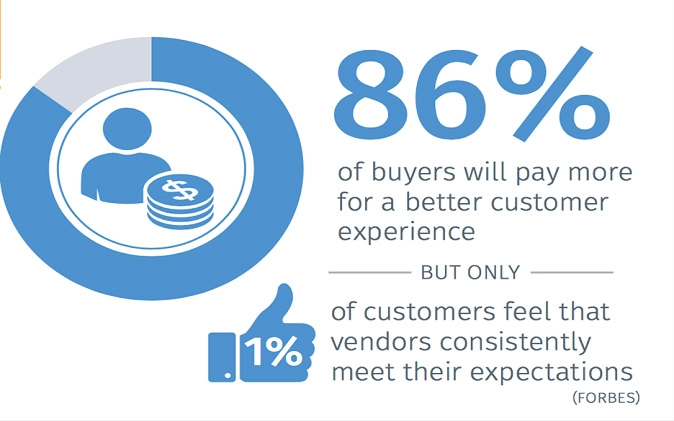
Source – incisive-edge
As per SuperOffice’s study, 1 in 3 customers will abandon a brand because of one bad experience. This should highlight the importance of a consistent customer experience.
Improve Your Content Marketing
Content marketing is still the king but there have been many developments. Your focus should be on improving it and leveraging it to its full potential.
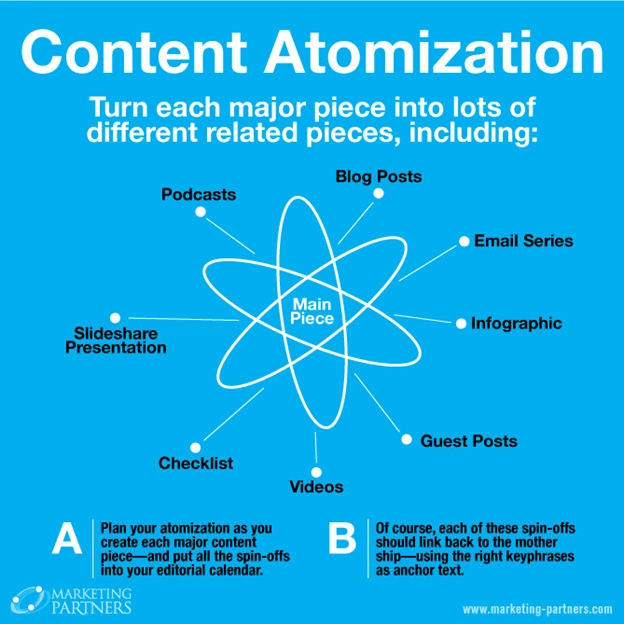
Source – medium.com
Offering content in different formats is necessary. You can also opt for approaches such as content atomization and syndication to further boost its effectiveness.
At the same time, ensure the content is customer-centric, entertaining, and engaging. Your audience should have fun while consuming your content.
Balance Data Analysis and Creativity
Data-driven marketing is indeed effective and helps enterprise marketers hit their targets. However, at times, data analysis can be overutilized.
Marketing has a dual nature, it’s a science and an art at the same time. The results it yields when balanced properly can drive tremendous revenue growth for enterprise marketing.
Storytelling is a powerful tool for marketing. Good storytelling can help keep your enterprise running and profitable for centuries. Make sure you make good use of it.
3)Make the Best Use of Technology
Technology and innovation are detrimental to the success of any business. This is highlighted by the fact that 8 of the 10 most valued enterprises are tech giants.
As enterprise marketers, you’re already aware of the benefits technology can bring to a business. Utilizing technology in the best possible way is still a challenge.
While there are many leading-edge technologies, a lot aren’t going to benefit your business. Here is what you need to do in terms of technology.
Find the best Tech Solutions for Your Requirements
The market is full of vendors offering varying degrees of technological solutions. Some will and some won’t work for you.
What you need to do is to understand all the pain points your enterprise marketing operations suffer from and find technologies that overcome those.
Make sure you conduct a cost-benefit analysis before investing in any solution. Technological solutions are expensive and need to be carefully weighed.
Build a Robust Marketing Tech Stack
While there are all-in-one solutions for enterprise marketing needs, as an enterprise you might want to opt for specialty marketing tools.
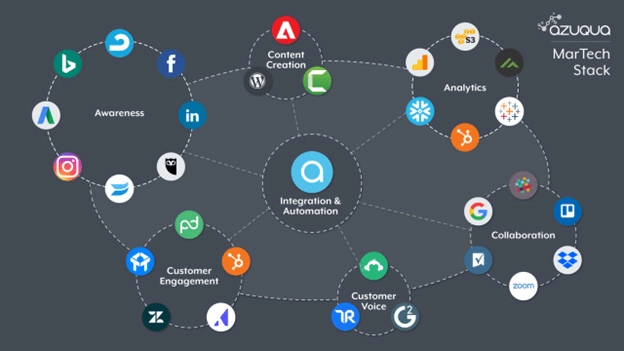
Source – LinkedIn
While doing so make sure you build a marketing tech stack that consists of tools that integrate well with each other. They also need to be easy to troubleshoot.
Any amount of downtime costs a lot for an enterprise. So, ensure these tools are stable and work together as your enterprise needs them to.
Streamline Data Management and Accessibility
Data is the most important resource available to enterprises. Data-driven decisions make enterprises six times more profitable than enterprises that aren’t data-driven.
However, you need to ensure that this valuable data and insights are available to everyone. Problems such as data silos, redundancy, and expired data are common.
These problems need to be addressed so everyone has access to updated and validated data to work with for enterprise marketing.
4)Find the Right People and Build the Right Relationships
The right people and the right relationships can be some of the most valuable assets for any enterprise. Modern-day enterprise marketers often overlook this.
Having the right people executing important marketing functions is more important than having the best tool for the job.
The right relationships can present you with more high ticket opportunities than any inbound or outbound marketing campaign. So do the following.
Hire Specialists for Every Function
Hiring generalist marketers and expecting them to perform amazingly at all functions is something that Enterprise Marketers need to stop.
Every marketing function now requires a specialist, especially when it comes to digital marketing. A single person cannot be good at SEO, PPC, Content, and Email Marketing.
Hiring specialists might cost more but the results they yield are exceptional for enterprise marketing.
Give Influencer Marketing a Shot
No, I’m not talking about the influencers who make reels and promote B2C products on social media. I’m talking about industry big names and key opinion leaders.
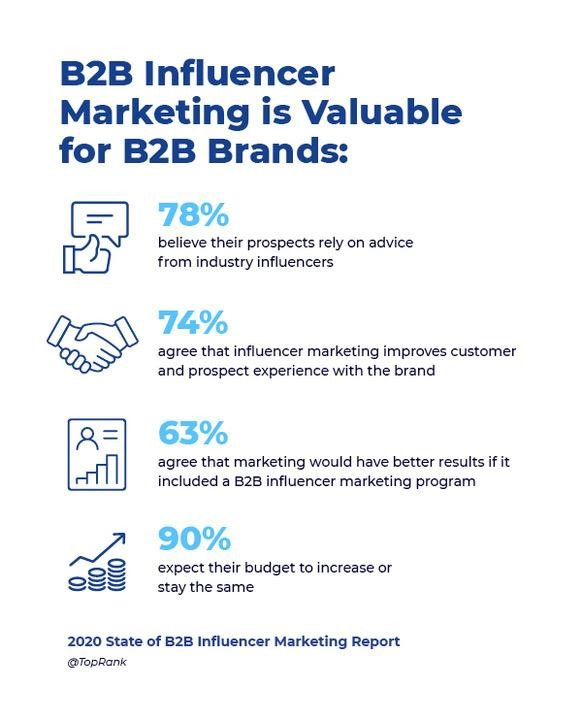
Source – toprankblog.com
Business forums and platforms such as LinkedIn and Twitter are ideal for partnering up with such influencers.
Here is a solid statistic for you, B2B and enterprise influencer marketing has a 5X return on marketing investment. I hope this makes you reconsider.
5)Make Provisions to Incorporate Flexibility
Everything mentioned above is only a response to the rapidly changing market and the world. Be sure that such changes will keep coming in.
The only way big enterprises will survive is by adapting to these changes and doing what is required for future circumstances in enterprise marketing.
Incorporating flexibility in your enterprise’s framework isn’t exactly a task an enterprise marketer leader deals with. However, there are things that you can do to aid this.
Propose Changes to the Internal Structure
You have control over the marketing department. Thus, you can propose changes to its structure. Draw up a framework that is flexible enough.
It should allow for upscaling and downsizing marketing operations as required. It should enable you to restructure teams effectively and quickly minimizing any friction.
Maintain High-quality Talent Pools
Marketing requirements keep changing and you may run into situations when you don’t have the needed expertise.
This demands a talent pool that you can tap into at any time and secure the services of an expert in the required field.
You will not be restricted from taking on any windfall opportunities due to a lack of expertise this way.
To Conclude With
As enterprise marketing leaders you will be facing many changes in the coming future. All the points mentioned in this article will help you prepare well for it.
However, the best way to be relevant and profitable is to learn new things, keep yourself updated with trends, and be willing to experiment with new approaches and technology.
So what thing will you start with first?
Our blog
Latest blog posts
Tool and strategies modern teams need to help their companies grow.

This comprehensive guide covers everything about service marketing—its unique chara...

Believe it or not, the concept of content sharing existed long before the Internet. I...

Sales analysis is essential to avoid inaccurate forecasts and identify improvement op...




